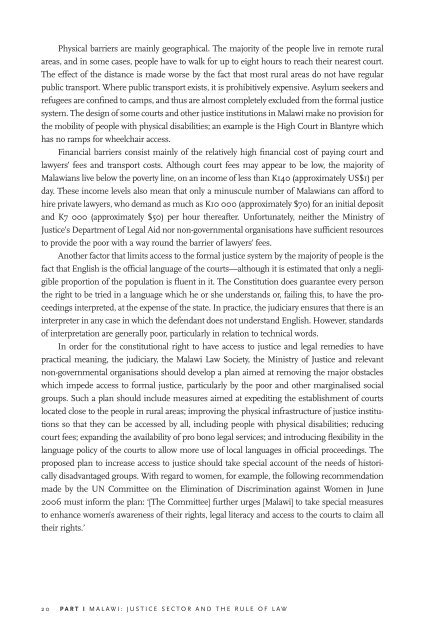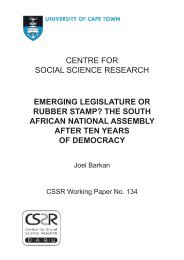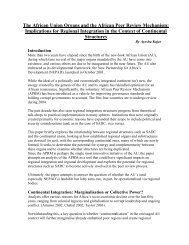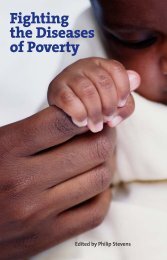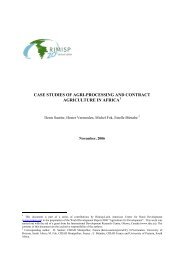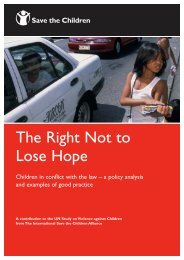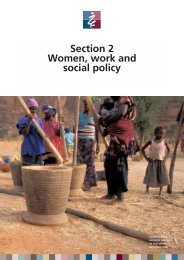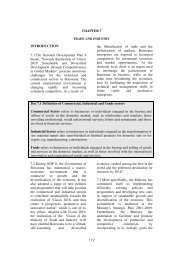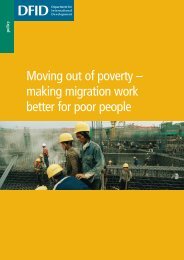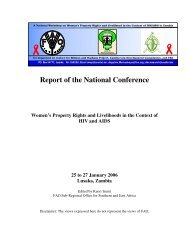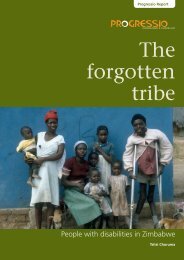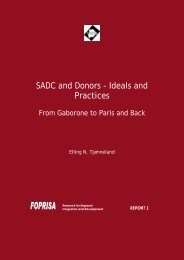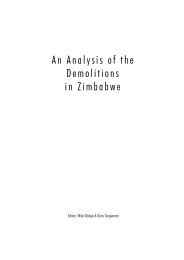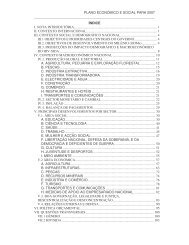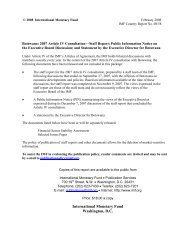Justice Sector and the Rule of Law - AfriMAP
Justice Sector and the Rule of Law - AfriMAP
Justice Sector and the Rule of Law - AfriMAP
You also want an ePaper? Increase the reach of your titles
YUMPU automatically turns print PDFs into web optimized ePapers that Google loves.
Physical barriers are mainly geographical. The majority <strong>of</strong> <strong>the</strong> people live in remote ruralareas, <strong>and</strong> in some cases, people have to walk for up to eight hours to reach <strong>the</strong>ir nearest court.The effect <strong>of</strong> <strong>the</strong> distance is made worse by <strong>the</strong> fact that most rural areas do not have regularpublic transport. Where public transport exists, it is prohibitively expensive. Asylum seekers <strong>and</strong>refugees are confined to camps, <strong>and</strong> thus are almost completely excluded from <strong>the</strong> formal justicesystem. The design <strong>of</strong> some courts <strong>and</strong> o<strong>the</strong>r justice institutions in Malawi make no provision for<strong>the</strong> mobility <strong>of</strong> people with physical disabilities; an example is <strong>the</strong> High Court in Blantyre whichhas no ramps for wheelchair access.Financial barriers consist mainly <strong>of</strong> <strong>the</strong> relatively high financial cost <strong>of</strong> paying court <strong>and</strong>lawyers’ fees <strong>and</strong> transport costs. Although court fees may appear to be low, <strong>the</strong> majority <strong>of</strong>Malawians live below <strong>the</strong> poverty line, on an income <strong>of</strong> less than K140 (approximately US$1) perday. These income levels also mean that only a minuscule number <strong>of</strong> Malawians can afford tohire private lawyers, who dem<strong>and</strong> as much as K10 000 (approximately $70) for an initial deposit<strong>and</strong> K7 000 (approximately $50) per hour <strong>the</strong>reafter. Unfortunately, nei<strong>the</strong>r <strong>the</strong> Ministry <strong>of</strong><strong>Justice</strong>’s Department <strong>of</strong> Legal Aid nor non-governmental organisations have sufficient resourcesto provide <strong>the</strong> poor with a way round <strong>the</strong> barrier <strong>of</strong> lawyers’ fees.Ano<strong>the</strong>r factor that limits access to <strong>the</strong> formal justice system by <strong>the</strong> majority <strong>of</strong> people is <strong>the</strong>fact that English is <strong>the</strong> <strong>of</strong>ficial language <strong>of</strong> <strong>the</strong> courts—although it is estimated that only a negligibleproportion <strong>of</strong> <strong>the</strong> population is fluent in it. The Constitution does guarantee every person<strong>the</strong> right to be tried in a language which he or she underst<strong>and</strong>s or, failing this, to have <strong>the</strong> proceedingsinterpreted, at <strong>the</strong> expense <strong>of</strong> <strong>the</strong> state. In practice, <strong>the</strong> judiciary ensures that <strong>the</strong>re is aninterpreter in any case in which <strong>the</strong> defendant does not underst<strong>and</strong> English. However, st<strong>and</strong>ards<strong>of</strong> interpretation are generally poor, particularly in relation to technical words.In order for <strong>the</strong> constitutional right to have access to justice <strong>and</strong> legal remedies to havepractical meaning, <strong>the</strong> judiciary, <strong>the</strong> Malawi <strong>Law</strong> Society, <strong>the</strong> Ministry <strong>of</strong> <strong>Justice</strong> <strong>and</strong> relevantnon-governmental organisations should develop a plan aimed at removing <strong>the</strong> major obstacleswhich impede access to formal justice, particularly by <strong>the</strong> poor <strong>and</strong> o<strong>the</strong>r marginalised socialgroups. Such a plan should include measures aimed at expediting <strong>the</strong> establishment <strong>of</strong> courtslocated close to <strong>the</strong> people in rural areas; improving <strong>the</strong> physical infrastructure <strong>of</strong> justice institutionsso that <strong>the</strong>y can be accessed by all, including people with physical disabilities; reducingcourt fees; exp<strong>and</strong>ing <strong>the</strong> availability <strong>of</strong> pro bono legal services; <strong>and</strong> introducing flexibility in <strong>the</strong>language policy <strong>of</strong> <strong>the</strong> courts to allow more use <strong>of</strong> local languages in <strong>of</strong>ficial proceedings. Theproposed plan to increase access to justice should take special account <strong>of</strong> <strong>the</strong> needs <strong>of</strong> historicallydisadvantaged groups. With regard to women, for example, <strong>the</strong> following recommendationmade by <strong>the</strong> UN Committee on <strong>the</strong> Elimination <strong>of</strong> Discrimination against Women in June2006 must inform <strong>the</strong> plan: ‘[The Committee] fur<strong>the</strong>r urges [Malawi] to take special measuresto enhance women’s awareness <strong>of</strong> <strong>the</strong>ir rights, legal literacy <strong>and</strong> access to <strong>the</strong> courts to claim all<strong>the</strong>ir rights.’


